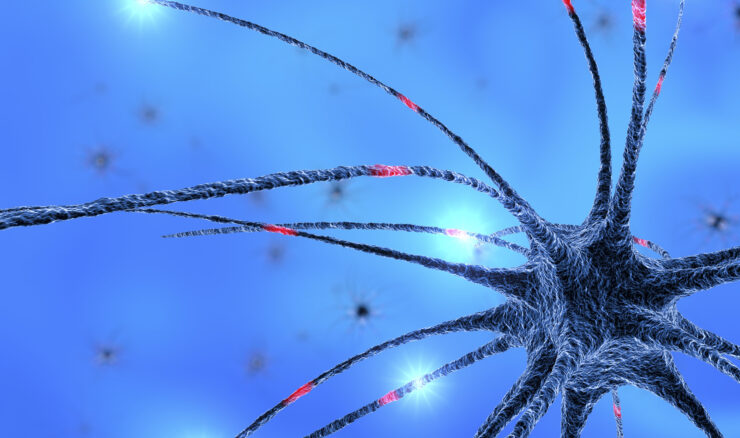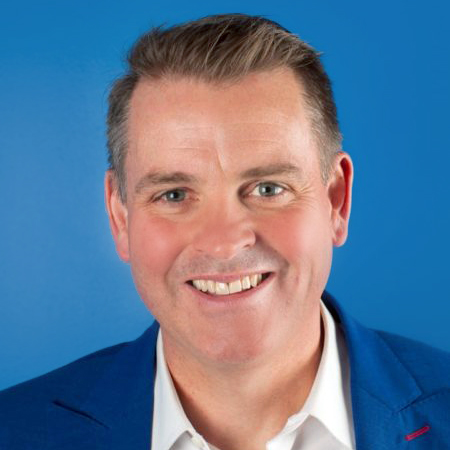
Closely-held Clene Nanomedicine is developing catalytic drugs to treat neurodegenerative diseases, using its clean surface nanocrystal (CSN) therapeutics platform to increase cellular bioenergy.
“We’re the first nanotherapeutics company with a novel platform that produces very reactive, clean surface nanocrystals that are, in and of themselves, the therapy,” president and CEO, Rob Etherington, says in an interview with BioTuesdays.
Nanotechnology has been used for more than a decade in diagnostics and to formulate or deliver drugs, such as those for visualizing and treating cancer, but Mr. Etherington explains that Clene is using nanotechnology in a completely different manner.
“CNM-Au8 is the first nanotherapeutic agent purposely designed to treat bioenergetic failure, which is a foundational problem for the effective treatment of neurodegenerative disease,” including multiple sclerosis (MS), Parkinson’s disease (PD) and amyotrophic lateral sclerosis (ALS).
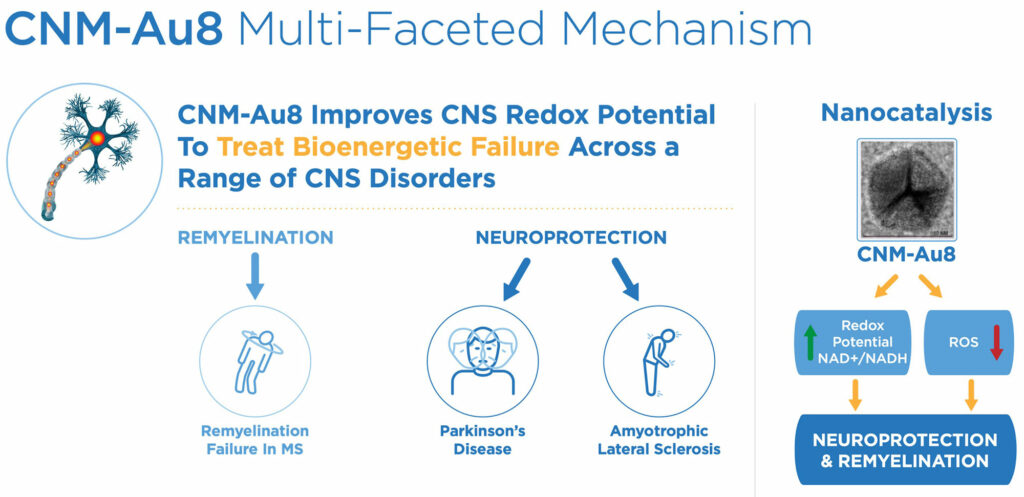
Normal brain function is highly dependent on electrochemical reactions, and a lack of bioenergy can result in decreased cellular metabolism and efficiency, which can lead to neurodegenerative disease.
Dr. Robert Glanzman, Clene’s CMO, explains that, “The brain is highly dependent on energy – it composes only 2% of body weight but uses about 25% of the body’s energy. As electron reservoirs, nanocrystals give cells energy by donating electrons as needed.”
Dr. Glanzman contends that bioenergetic failure can impair normal neuroprotective processes, which can potentially lead to the development of PD and ALS, and the neuronal demyelination characteristic of MS. “One of the reasons people get neurodegenerative disease in old age is because cells are unable to generate sufficient energy to support normal cellular metabolism, which is exacerbated by the underlying disease mechanisms.”
Clene’s CSN electrochemistry platform was developed internally and has been granted nearly 100 patents. CNM-Au8 consists of clean surface gold nanocrystals that are about 13 nanometers in diameter, compared with DNA’s diameter of 2.5 nanometers. Comprised of gold atoms in a crystalline form, grown in highly purified water, CNM-Au8 is administered orally, with each 60 ml dose delivering around a quadrillion nanocrystals. “Our nanoparticle has a clean surface, without any synthetic nor organic chemistry residue. Our nanocrystals cross the blood-brain barrier, and do not exhibit toxicities typically associated with synthetic nanoparticle chemistry,” Mr. Etherington explains.
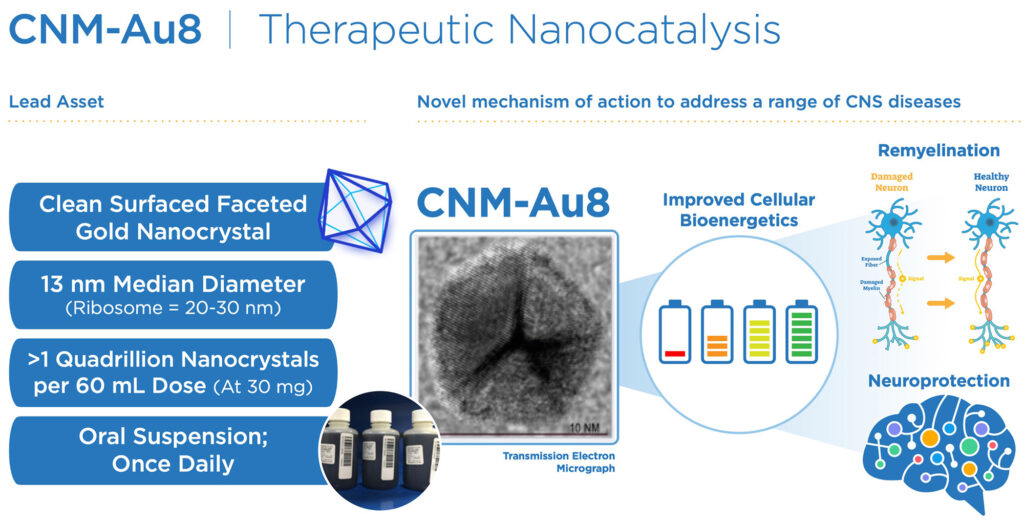
ALS is a progressive and fatal disease, characterized by widespread motor neuron death, with no effective treatments. In May 2019, Clene obtained the FDA’s orphan drug designation for CNM-Au8 for the treatment of ALS, which affects some 60,000 patients in the U.S. and 450,000 patients worldwide.
High on Clene’s agenda is HEALEY ALS, a registrational trial that will be conducted at the Massachusetts General Hospital’s Healey Center for ALS. HEALEY ALS will be conducted in collaboration with the Northeast ALS (NEALS) Consortium, which includes 50 of the best ALS clinical centers in the U.S., and will be one of the first platform trials to be conducted in the country. “There were 28 companies that applied to be in this study, and we were one of the first three therapies chosen,” Mr. Etherington points out.
Platform trials are most commonly employed in oncology studies and have a single master protocol in which multiple treatments can be evaluated simultaneously. All patients enter the master protocol and are then re-randomized into different treatment arms.
“This platform trial benefits patients because they have a three-in-four chance of getting active drug, while enabling us to share placebo groups from other treatment arms,” Dr. Glanzman explains, adding that Clene plans to enroll 160 patients in the trial, with the first patient visit expected in the first quarter of 2020.
The trial’s primary endpoint is the change in the ALS functional rating scale. “If CNM-Au8 is successful in this platform trial, then we have the potential to bring the drug to market without any additional efficacy trials,” Mr. Etherington adds.
The company has also been working with the director of the Healey Center for ALS, Dr. Merit Cudkowicz, to provide patients with immediate access to CNM-Au8. With the FDA’s permission, Clene launched an expanded access program in September 2019 to treat 20 ALS patients with CNM-Au8.
CNM-Au8’s potential to treat MS, which affects some 2.5-million individuals worldwide, is based on improving the bioenergetics of oligodendrocytes. One of oligodendrocytes’ main functions is to produce myelin, the neuronal insulator that is attacked by MS patients’ immune system. The drug candidate has demonstrated brain and spinal cord remyelination in two independent animal models of chronic and acute demyelination, as well as oligodendrocyte recovery.
“In an animal demyelination model, we co-administered cuprizone – a toxin that kills oligodendrocytes – with CNM-Au8 and observed remyelination as if the animals had never received the toxin. CNM-Au8 was able to reverse damage caused by previously administered cuprizone,” Dr. Glanzman says.
Moreover, as functional recovery is critical alongside such preclinical models, CNM-Au8 also restored animals’ gross and fine motor kinetics to levels that approached that of the untreated sham control group in a functional demyelination model.
CNM-Au8’s neuroprotective properties have also been demonstrated in models of PD and ALS. In PD, patients exhibit an abnormal accumulation of Lewy bodies in the brain, whereas ALS patients experience a buildup of a protein called TDP43. Dr. Glanzman says that this is due, in part, to cells’ decreased ability to address misfolded proteins, adding that, “Our preclinical data show that increasing bioenergetics can decrease the amount of misfolded proteins in both diseases.”
Some seven-million individuals suffer from PD worldwide, where the loss of dopamine-producing neurons results in a variety of motor symptoms including tremors, stiffness and slowness of movement.
CNM-Au8 was shown to protect dopaminergic neurons in an in vitro model of PD, and demonstrated functional recovery in an animal model of PD. The drug candidate also enhanced motor neuron networks in two in vitro models of ALS, and increased lifespan and motor behaviors in an animal ALS model.
Clene has completed all of the long-term animal toxicology studies required by the Canadian, U.S. and Australian regulators in multiple species, and has obtained the necessary country regulatory approvals to proceed with clinical trials. A first-in-human study of single- and multiple-ascending doses of CNM-Au8 demonstrated its safety and tolerability.
The company is currently evaluating CNM-Au8 in two MS clinical programs. Its most advanced program is VISIONARY-MS, a Phase 2 proof-of-concept study launched in late 2018 that could support an NDA submission.
The VISIONARY-MS study is assessing patients with chronic optic neuropathy, which impacts patients’ ability to see in low-light environments and their response time to visual stimuli. Clene expects an initial data readout in the third quarter of 2021.
Clene’s three Phase 2 biomarker studies, RepairMS, RepairPD and RepairALS, will use magnetic resonance spectroscopy to confirm CNM-Au8’s ability to cross the blood-brain barrier and improve brain cells’ bioenergetic profiles. The company has screened the first patient in its RepairPD trial and is preparing to screen the first patient for its RepairMS trial, with the first set of data expected in mid-2020.
In addition to the HEALEY ALS trial, Clene plans to initiate two clinical trials evaluating CNM-Au8’s neuroprotective capabilities by the end of this year. The Phase 2 RESCUE-PD and RESCUE-ALS trials will assess CNM-Au8’s ability slow disease progression in PD and ALS patients, respectively, who are on stable background therapy.
“The great thing about CNM-Au8 is that is can be given in combination with any disease modifying therapy, and we have seen no drug-drug interactions. We believe it’s the answer for patients being treated with approved therapies but whose disease is still progressing,” Mr. Etherington says.
The RESCUE-ALS study will be conducted in Australia and is fully funded by Australia’s Fight Motor Neuron Disease Association. Clene is currently pursuing financing to begin the RESCUE-PD study.
Dr. Glanzman points out that a new approach to treating neurodegenerative disease is sorely needed. “Without bioenergetic support, even if you slow or reverse the underlying disease mechanism, you’re not going to make much of an impact. CNM-Au8 may not be a sufficient monotherapy, but it may be a necessary component of neurodegenerative disease treatment.”
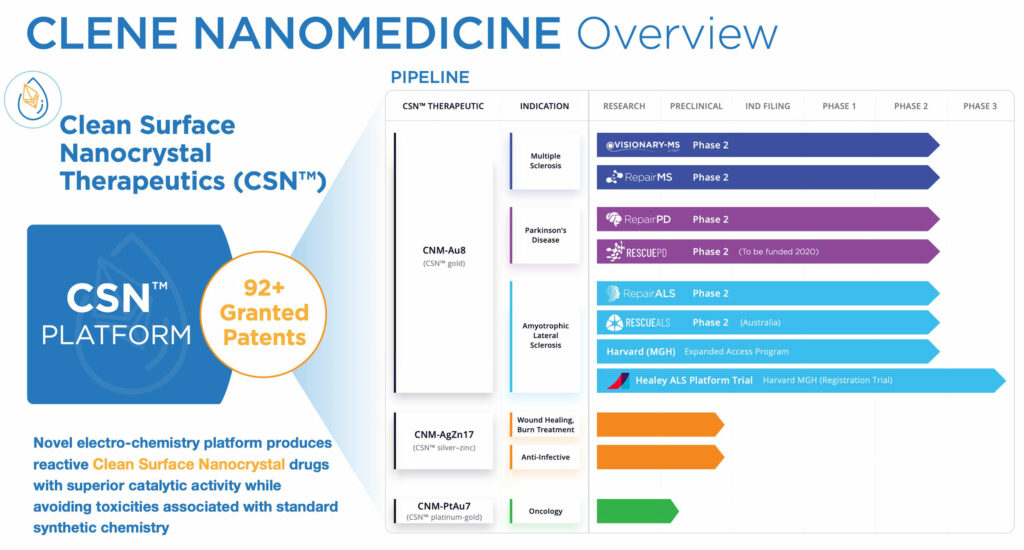
• • • • •
To connect with Clene, or any of the other companies featured on BioTuesdays, send us an email at editor@biotuesdays.com.


